3 major bottlenecks
More than a year after the General Department of Customs of China signed a protocol allowing the official import of bird's nests into this country, on the afternoon of November 16, in Lang Son, the announcement ceremony of the export of the first batch of bird's nest products from Vietnam to the Chinese market took place.
 |
| Exporting bird's nest to the Chinese market: Naming 3 major issues that need to be solved |
The Protocol on Exporting Edible Bird's Nest Products to China is expected to help the Vietnamese bird's nest industry earn hundreds of millions of USD. However, after more than a year of signing, the number of businesses or official export shipments to this market is still quite modest. The reason explained by businesses is that the delay in granting codes to bird's nest farms to implement traceability affects the opportunities of the Vietnamese bird's nest farming industry as well as the export of bird's nests by people and businesses.
Regarding this, Mr. Tong Xuan Chinh - Deputy Director of the Department of Animal Husbandry (Ministry of Agriculture and Rural Development) - said that the Department has not been able to issue codes to bird nest farms because the Draft on guidelines for issuing codes to bird nest farms, which the Department of Animal Husbandry has completed and is still being submitted to the leaders of the Ministry of Agriculture and Rural Development for consideration and approval.
“A few years ago, the Department of Animal Husbandry worked with FAO (Food and Agriculture Organization of the United Nations) and they supported us in building software to manage and issue codes for birdhouses in some provinces in the project,” Mr. Tong Xuan Chinh added.
Regarding the bird's nest industry, Mr. Tong Xuan Chinh said that there are three major issues that need to be resolved immediately. First, it is necessary to quickly guide the issuance of bird's nest house codes according to the requirements of the Protocol. Second, it is necessary to accurately count the number of bird's nest houses, their scale, capacity and bird's nest output. Third, the situation of massive development of bird's nest houses and the problem of illegal hunting of swiftlets.
According to Mr. Tong Xuan Chinh, the rapid development of bird's nest houses has been going on for about 5-6 years now, and especially after the Protocol was signed, there were more investors.
“In 2017, there were 8,304 birdhouses, but by 2022, the number will skyrocket to 23,665 birdhouses. The Mekong Delta is the key birdhouse farming area in our country. In 2017, there were only 3,064 birdhouses, but by 2022, there will be 10,572 birdhouses,” Mr. Tong Xuan Chinh cited.
There are many reasons for this rapid development. Many people see that bird's nest is a high-value commodity, the selling price has increased, especially when the export protocol to China was signed, there is good export potential, can earn a large amount of money, so those who have the conditions are looking to buy land, buy houses to build bird's nest houses, but do not have enough knowledge and techniques about bird's nest houses to suit the habits and growth of the bird, so the birds do not come to build nests.
According to estimates from the Vietnam Bird's Nest Association, currently over 20% of bird's nest houses do not have birds coming to nest. The cost of building a bird's nest house is very high, from 1 billion VND to several billion VND/house. The development of a biological population of bird's nests has a limited life cycle and reproductive capacity, so it is impossible to build too many houses to attract birds to surpass the biological threshold in nature.
Local reports show that in 2023, Vietnam will have about 23,000 bird nest houses, concentrated in the provinces from Thua Thien Hue onwards. There are currently no official statistics on output, however, according to the Vietnam Bird Nest Association and the Vietnam Bird Nest Association, it is estimated that in recent years, Vietnam has produced about 150 tons of raw bird nests/year.
Need to invest in deep processing and improve product quality
According to industry experts, China is currently the world's largest consumer market for bird's nest products (nearly 90%), and is also a traditional and familiar trading partner for many types of agricultural products from our country, including bird's nest. This is a great advantage for us to boost bird's nest exports to China.
However, besides the advantages, there are also many difficulties. Accordingly, Vietnamese products will have to compete with some countries exporting bird nests and bird nest products such as Indonesia, Philippines, Malaysia...
For example, Indonesia exports 2-3 billion USD each year, the output is not significantly higher than Vietnam but the deep processing rate is high.
Meanwhile, Vietnam’s weakness is that whenever it exports a product, mass production without investment in quality occurs. This is a lesson that all parties involved need to avoid in order to maintain and effectively exploit the Chinese export market.
To promote bird's nest exports to the Chinese market, Mr. Tong Xuan Chinh said that, on the part of the Department of Animal Husbandry, in the immediate future, it will focus on completing the livestock database system to serve the traceability of origin, meet the requirements of the Protocol and serve the statistical work, thereby regulating the industry scientifically, ensuring supply and demand for sustainable development of the bird's nest industry.
Currently, the Department of Animal Husbandry is submitting a dossier to the Ministry of Agriculture and Rural Development for consideration and issuance of amendments to Circular 23/2019 of the Ministry of Agriculture and Rural Development guiding livestock farming activities, including declaration of bird nest farming activities. Thereby, there is specific information, serving as a basis for localities to manage bird nest farming facilities in the area.
At the same time, we will quickly build, supplement and perfect standards, regulations and technical processes for the bird's nest industry, because this is a new field in our country's livestock industry.
Mr. Tong Xuan Chinh also said that in order for the bird's nest industry to develop sustainably and have high added value, the support of businesses is indispensable. Businesses need to focus on deep processing, diversifying products and markets to increase value. There needs to be a connection and cooperation between farmers, businesses, scientists, and management agencies to support and help each other develop together according to the principle of win-win.
Source link











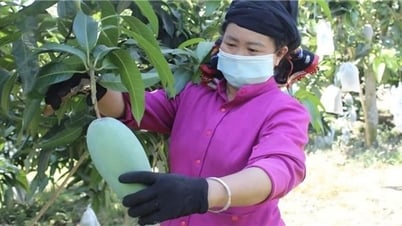

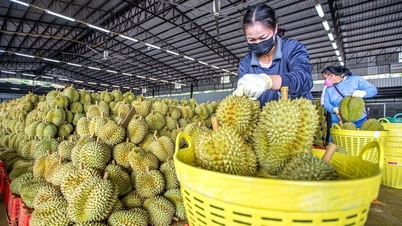

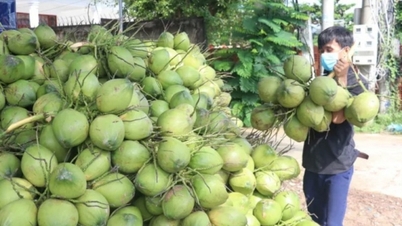
















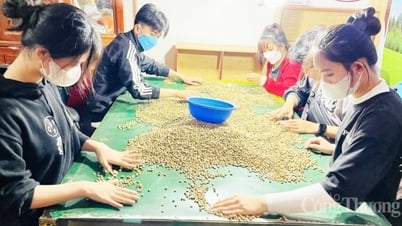
![[Photo] General Secretary To Lam meets with Chairman of the Federation Council, Parliament of the Russian Federation](https://vphoto.vietnam.vn/thumb/1200x675/vietnam/resource/IMAGE/2025/5/10/2c37f1980bdc48c4a04ca24b5f544b33)
![[Photo] Ho Chi Minh City: Many people release flower lanterns to celebrate Buddha's Birthday](https://vphoto.vietnam.vn/thumb/1200x675/vietnam/resource/IMAGE/2025/5/10/5d57dc648c0f46ffa3b22a3e6e3eac3e)











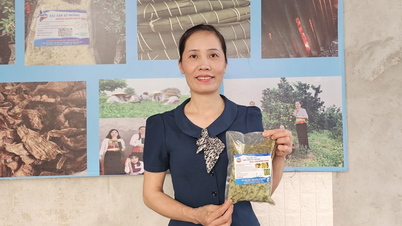

















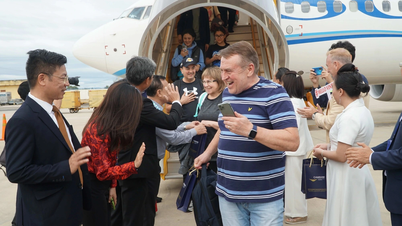



































Comment (0)